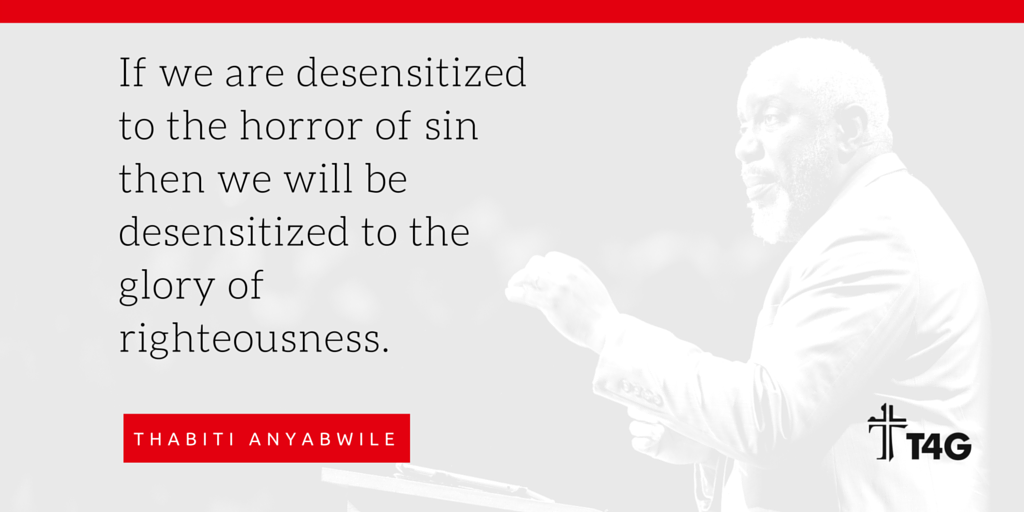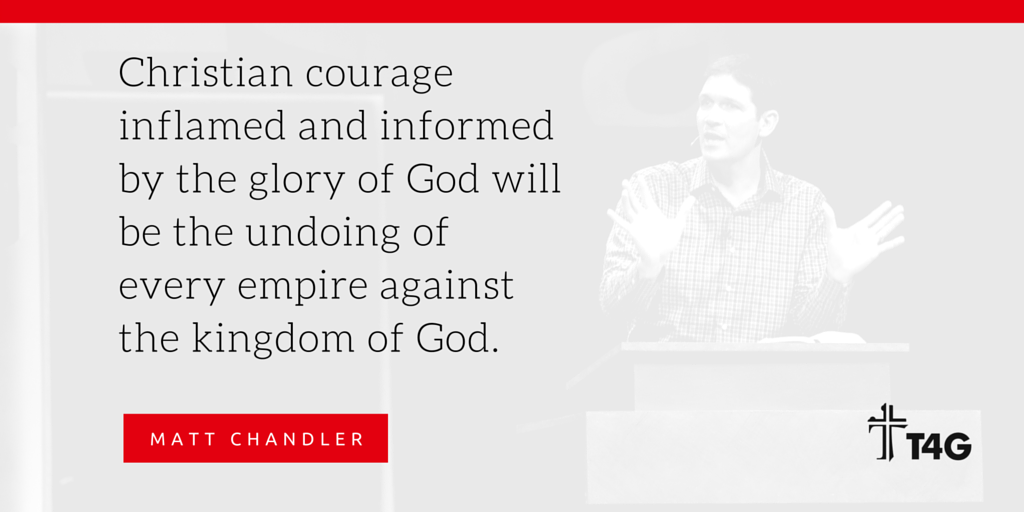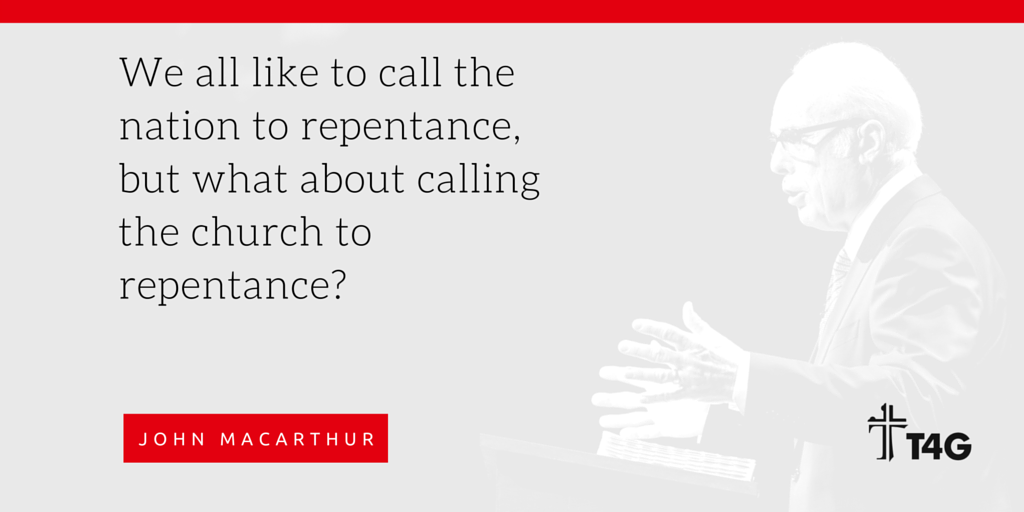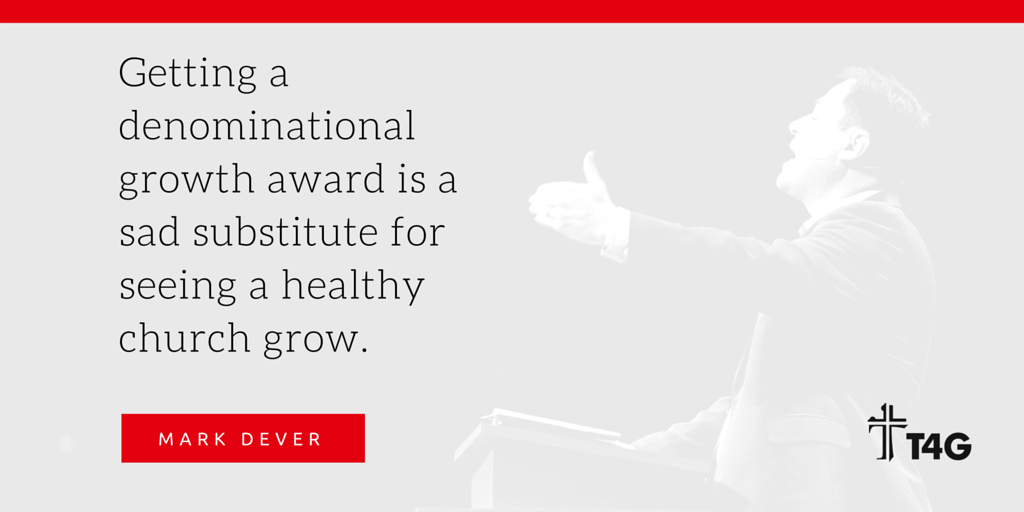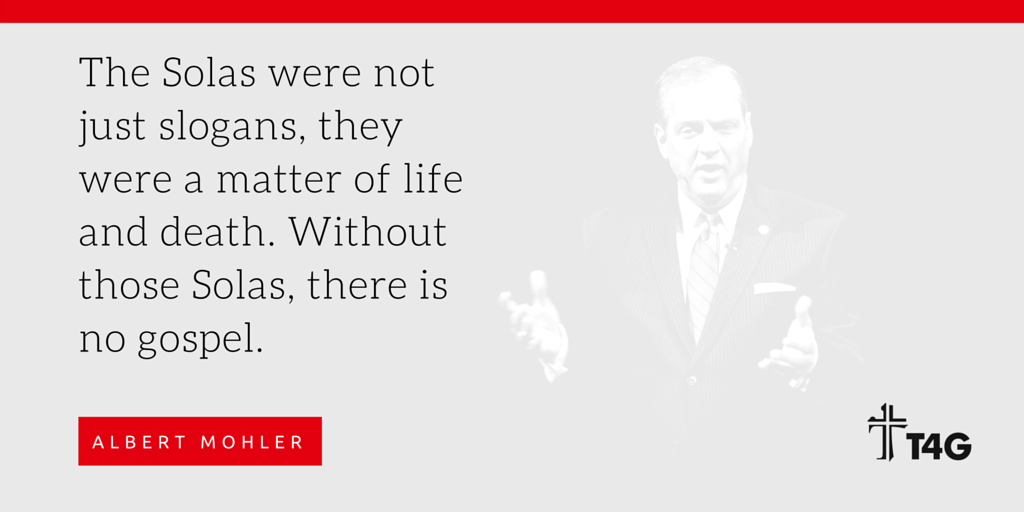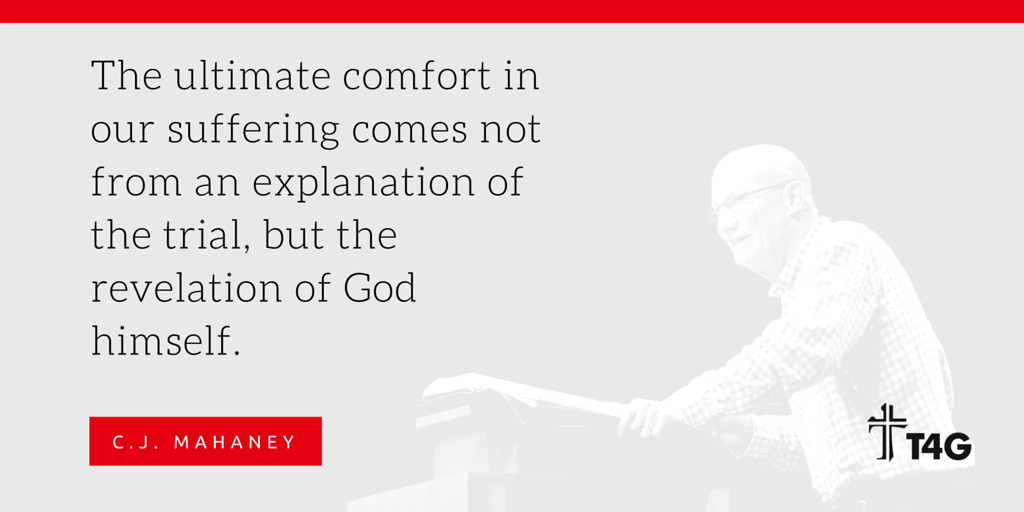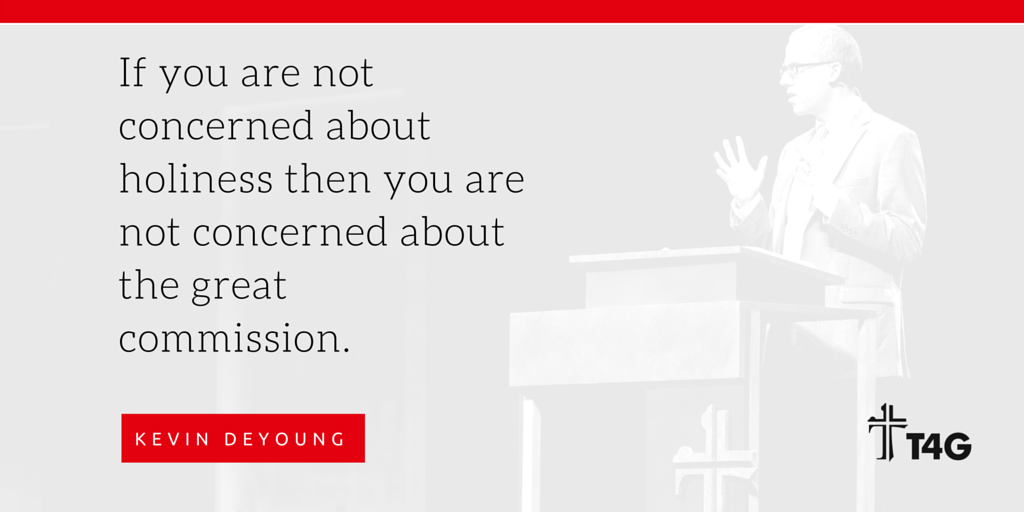
This is the fifth post in a series with my notes from the Together for the Gospel Conference (#T4G2016) that was held from April 12-14 in Louisville, KY. To see my other notes from the sermons at T4G, click here.
Speaker: Kevin DeYoung Key text: 1 John
Listen to the full sermon: Audio || Video
Good works, good news, and Christian assurance aren’t opposed to one another, but go together. Can we be glorified without being sanctified? No! If your life is habitually marked by sin, Christ calls you defiled and you are not on your way to heaven (Mark 7:21-23; 1 Corinthians 6:9-10; Galatians 5:17-21). We are in a dire situation if our life is marked by sin. Only those who conquer and overcome will escape the second death and eat from the tree of life (Revelation 2-3).
The authentic Christian life is filled with weakness, but not capitulation. Paul revels in his weakness, but never refer to is as a weakness or excuse to sin. To be a Christian, one who receives the reward, is to conquer and overcome sin. There is a close relationship in Scripture between sanctification and glorification (Romans 8:29-39; 1 Corinthians 6:11; Hebrews 12:14). Without sanctification, we can have no confidence of our justification. Works are the fruit; not the root of salvation. One of the hallmarks of theological liberalism is to not be concerned about the meaning of words–favoring slogans over precision.
“Grace is glory begun as glory is grace consummated.” -Francis Turretin. Sanctification is the work of God to prepare us for the life and world to come. If we are to be glorified later, we will experience sanctification now.
Three Evidences We are on the Road to Eternal Life: Read more of this post

